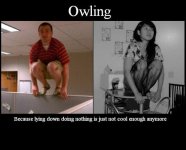kb57
Well-known member

Agree with the majority here, 'waterbird' is the correct term to use in an ornithological context.
The problem is no-one has told Microsoft or Apple - just tried typing it on my iPhone and it autocorrects to 'water birds'; on Word I get a red underline denoting typographical error. So I can understand how anyone who is relying on spellcheck functions may get confused by this.
See also 'watercourse'...
The problem is no-one has told Microsoft or Apple - just tried typing it on my iPhone and it autocorrects to 'water birds'; on Word I get a red underline denoting typographical error. So I can understand how anyone who is relying on spellcheck functions may get confused by this.
See also 'watercourse'...






